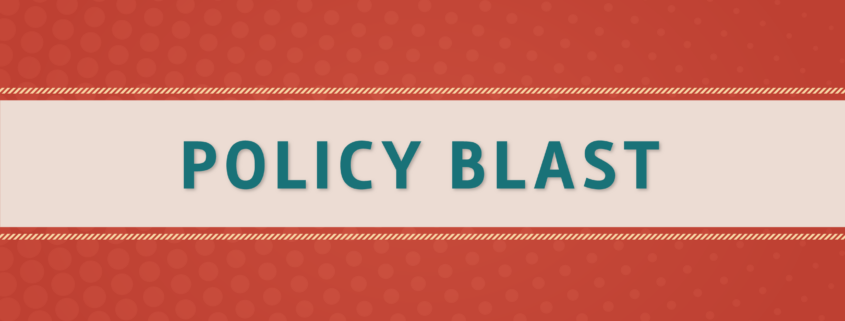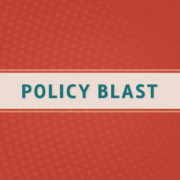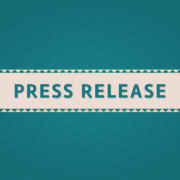NCUIH SIGNS THREE JOINT LETTERS URGING CONGRESSIONAL ACTION BEFORE THE END OF THE YEAR
The National Council of Urban Indian Health (NCUIH) signed three letters urging Congress to act on priority issues in Indian Country: COVID-19 stimulus health funds for Indian Country, extension of Federal Tort Claims Act (FTCA) coverage to Urban Indian Organizations (UIOs), and passage of several tribal Veteran bills.
COVID-19 Stimulus Health Funds for Indian Country
This letter, signed by NCUIH, the National Indian Health Board (NIHB), and the National Congress of American Indians (NCAI), advocates for COVID-19 pandemic relief and includes the following funding priorities:
- Minimum $2 billion in emergency funds to Indian Health Service (IHS) for immediate distribution to Indian Health Service/Tribal Health Program/UIO (I/T/U) system
- Minimum $1 billion to replenish lost third-party reimbursements across the I/T/U system
- Minimum five percent I/T/U funding set-aside for vaccine distribution and administration
- Long-term reauthorization of the Special Diabetes Program for Indians (SDPI)
FTCA Coverage for UIOs
The letter, signed by NCUIH and NCAI, advocates for parity in the Indian Health System (IHS) by urging Congress to pass H.R. 6535 / S. 3650. This legislation would extend the same insurance coverage as IHS and Tribal facilities to UIOs. This bill has passed the House Natural Resources Committee and is awaiting action to be added to the House suspension calendar.
Tribal Veterans Bills
This letter, signed by NCUIH, NCAI, and NIHB, deals with several bills supporting Native Veterans including NCUIH’s H.R. 4153 which was passed in the House on Thursday, December 3 by unanimous consent. It now awaits further consideration by the Senate where NCUIH is advocating for it be hotlined before the end of the year.
Why is this important to UIOs?
- Passage of these bills would mean liability coverage for UIOs, improved health care delivery for Native Veterans, and increased funding to respond to the pandemic.
NCUIH Contact: Meredith Raimondi, Director of Congressional Relations, (mraimondi@ncuih.org)
LETTERS:
December 4, 2020
Re: COVID-19 Stimulus Health Funds for Indian Country
Dear Speaker Pelosi, Leader McConnell, Leader McCarthy, and Leader Schumer:
On behalf of the undersigned national organizations collectively serving all 574 sovereign federally-recognized American Indian and Alaska Native (AI/AN) Tribal Nations and all 41 urban Indian organizations (UIOs), we write to urge you to include the following emergency funding and technical resources for Indian Health Service (IHS), Tribal governments, and urban Indian organizations (collectively “I/T/U”) in any year-end COVID-19 stimulus package, omnibus appropriations package, or in a separate legislative vehicle, before the end of the 116th Congress.
- Minimum $2 billion in emergency funds to IHS for immediate distribution to I/T/U system
- Minimum $1 billion to replenish lost 3rd party reimbursements across the I/T/U system
- Minimum 5 percent I/T/U funding set-aside for vaccine distribution and administration
- Minimum $1 billion for water and sanitation systems across IHS and Tribal communities
- Long-term reauthorization of the Special Diabetes Program for Indians(SDPI)
Over the course of this pandemic, Tribal Nations, Tribal organizations, and UIOs have submitted countless letters to Congress outlining the devastating toll of COVID-19 across Indian Country. Most recently, on September 8, we wrote to you about the urgent need for Congress to pass the same critical priorities outlined in this letter. Back in July of this year, the bipartisan Congressional Native American Caucus submitted a letter to House Appropriations Committee Chair Lowey and Ranking Member Granger, urging inclusion of the Tribal priorities outlined in our joint letters. But as of this writing, we still await congressional action on these priorities while COVID-19 conditions in Indian Country have only worsened.
Since mid-July,therehasbeena390% increase in COVID-19 case infections among AI/ANsreportedbyIHS1, and a 179% increase in hospitalization rates among AI/ANs.2 According to the Centers for Disease Control and Prevention (CDC), COVID-19 death rates among AI/ANs are 2.6 times the rate for non-Hispanic Whites.3As of November 30, IHS has reported a 7-day rolling average positivity rate of 14.5% nationwide, with some IHS Areas experiencing positivity rates at above 26%.4 In comparison, according to CDC data, the nationwide average 7-day positivity rate has not surpassed 15% since week 19 of the pandemic (ending May 9, 2020). These sobering data points only affirm the fact that Indian Country continues to bear the brunt of this crisis. Just this week, CDC Director Dr. Redfield warned that COVID-19 deaths could reach as high as 450,000 come February – demonstrating that the toll of the virus is far from over. Without sufficient additional congressional relief sent directly to I/T/U systems, these shocking upward trends will likely continue because I/T/U systems have limited resources to mitigate, treat, and respond to the virus.
Meanwhile, the Special Diabetes Program for Indians (SDPI) – a program that is instrumental for COVID-19 response efforts in Indian Country because it is focused on prevention, treatment, and management of diabetes, one of the most significant risk factors for a more serious COVID-19 illness5 – has endured five short-term extensions since last September, placing immense and undue strain on program operations. In fact, a national survey conducted by the National Indian Health Board (NIHB) found that nearly 1 in 5 Tribal SDPI grantees reported employee furloughs, including for healthcare providers, with 81% of SDPI furloughs directly linked to the economic impacts of COVID-19 in Tribal communities. Roughly 1 in 4 programs have reported delaying essential purchases of medical equipment to treat and monitor diabetes due to funding uncertainty, and nearly half of all programs are experiencing or anticipating cutbacks in the availability of diabetes program services – all under the backdrop of a pandemic that continues to overwhelm the Indian health system.
To be clear, we appreciate the over $1 billion to IHS under the CARES Act and the $750 million Tribal testing set-aside under the Paycheck Protection Program and Health Care Enhancement Act; however, these investments have been necessary but insufficient to stem the tide of the pandemic in Tribal and urban AI/AN communities. While were main optimistic that Congress can pass an omnibus appropriations package for Fiscal Year (FY)2021 by December 11, the possibility of another continuing resolution (CR) remains. We remind you that IHS is the only federal healthcare delivery system that is not exempt from CRs and government shutdowns.
If Congress fails to provide sufficient emergency appropriations for the I/T/U, a stopgap measure will force a health care system serving roughly 2.6million AI/ANs to continue operating under a pandemic without an enacted budget or even adjustments for medical and non-medical inflation. In addition, IHS will be forced to coordinate distribution and administration of a COVID-19 vaccine without additional federal resources and funding. In short, that is a recipe for even more disaster, death, and despair. You can prevent that from happening, and we implore you to do so by acting swiftly on the recommendations in this letter.
We thank you for your continued commitment to Indian Country, and as always, stand ready to work with you in a bipartisan fashion to advance the health of all AI/AN people.
Sincerely,
National Indian Health Board
National Congress of American Indians National Council of Urban Indian Health
1 Number of COVID-19 cases reported by IHS increased from 27,233 positive cases on July 19, 2020 to 106,393 cases as of November 30, 2020
2 On July 19, 2020, CDC had reported an age-adjusted cumulative COVID-19 hospitalization rate of 272 per 100,000 among AI/ANs; as of November 21, rates among AI/ANs were at 487.3 per 100,000.
3 Centers for Disease Control and Prevention. COVID-19 Hospitalization and Death by Race/Ethnicity. Retrieved from https://www.cdc.gov/coronavirus/2019-ncov/covid-data/investigations-discovery/hospitalization-death-by-race-ethnicity.html#footnote03
4 Indian Health Service. COVID-19 Cases by IHS Area. Retrieved from https://www.ihs.gov/coronavirus/
5The Centers for Disease Control & Prevention includes diabetes in a list of medical conditions that increase the chance of severe illness from COVID-19. Centers for Disease Prevention & Control, People with Certain Medical Conditions (Aug. 14, 2020), https://www.cdc.gov/coronavirus/2019-ncov/need-extra-precautions/people-with-medical-conditions.html.
December 4, 2020
Re: FTCA Coverage for UIOs
Dear Speaker Pelosi, Leader McConnell, Leader McCarthy, and Leader Schumer:
On behalf of the undersigned national organizations collectively serving all 574 sovereign federally recognized American Indian and Alaska Native (AI/AN) Tribal Nations and all 41 urban Indian organizations (UIOs), we write to urge you to pass H.R. 6535 / S. 3650 in this Congress to provide parity in the Indian Health System. Specifically, UIOs would be extended the same insurance coverage as Indian Health Service (IHS) and Tribal facilities instead of being forced to divert scarce resources away from health care in order to foot exorbitant insurance costs.
In August, the Centers for Disease Control and Prevention (CDC) reported that across 23 states, cumulative incidence rates of lab-confirmed COVID-19 among AI/ANs are 3.5 times higher than for non-Hispanic Whites.1 Also, according to CDC, COVID-19 hospitalization among AI/ANs were 4.7 times higher than for non-Hispanic Whites.2 As this pandemic devastates Indian Country, UIOs have been forced to make extremely difficult choices – facing competing priorities and expenses, like increased PPE and renovation costs, in addition to very costly malpractice insurance. As of November, “the Oklahoma City IHS Area now has the highest total number of cases3” and the Oklahoma City Indian Clinic is one of the UIOs that pays the highest annual rate for medical malpractice insurance. If provided insurance parity with IHS and Tribal facilities, this UIO alone could direct up to an additional $250,000 to patient care at a time when increased access to care is needed most.
As you know, the trust responsibility to provide health care extends to urban Indians, as well as those Indians residing on reservations. Enacting this law before the end of this Congress would undoubtedly save AI/AN lives and increase available health care services. This legislation has broad bipartisan support in both chambers and is endorsed by IHS. NCAI has a standing resolution supporting this legislation, Resolution #PDX-20-038, “Supporting Extension of Federal Tort Claims Act (FTCA) Coverage to Urban Indian Organizations.”
We thank you for your continued commitment to Indian Country and, as always, stand ready to work with you in a bipartisan fashion to advance the health status of all AI/AN people.
Sincerely,
National Congress of American Indians National Council of Urban Indian Health
1 Hatcher SM, Agnew-Brune C, Anderson M, et al. COVID-19 Among American Indian and Alaska Native Persons — 23 States, January 31–July 3, 2020. MMWR Morb Mortal Wkly Rep 2020;69:1166–1169.
2 Centers for Disease Control and Prevention. COVIDView Weekly Summary.
3 COVID-19 Data – Situation Summary (November 25, 2020)
December 4, 2020
Re: Request Passage of Tribal Veterans Bills this Congress
Dear Speaker Pelosi, Majority Leader McConnell, Minority Leader McCarthy, and Minority Leader Schumer:
On behalf of the undersigned national organizations collectively serving all 574 sovereign federally-recognized American Indian and Alaska Native (AI/AN) Tribal Nations and all 41 urban Indian organizations (UIOs), we write to urge you to ensure the passage of the following tribal veteran bills in any legislative vehicle before the end of the 116th congress:
- H.R. 4908 / S. 4909 – Native American Veterans PACT Act
- S. 524 / H.R. 2791 – Veterans Affairs Tribal Advisory Committee Act of 2019
- S. 2365 / H.R. 4153 – Health Care Access for Urban Native Veterans Act of 2019
- H.R.6237 – PRC for Native Veterans Act
AI/ANs have a long history of distinguished service to this country. Per capita, AI/ANs serve at a higher rate in the Armed Forces than any other group of Americans and have served in all the nation’s wars since the Revolutionary War. In fact, AI/AN veterans served in several wars before they were even recognized as U.S. citizens. Despite this esteemed service, AI/AN veterans have lower personal incomes, higher unemployment rates, and are more likely to lack health insurance than other veterans.
The United States must honor its commitments to AI/AN veterans. The federal government’s responsibility to provide quality healthcare to AI/AN veterans comes both from their service to this country and the federal government’s treaty and trust obligations to AI/AN people. If enacted, the legislation listed above, and detailed below, moves us closer to fulfilling the federal government’s dual responsibility to AI/AN veterans, regardless of whether they are living on rural reservation lands or in major urban areas.
H.R. 4907 / S. 4909 – Native American Veterans PACT Act
Currently, AI/AN veterans are required to pay a copayment before receiving services at the VA. In the fiscal year 2017, approximately 30 percent of AI/AN veterans were charged copayments, averaging approximately $281.56 per veteran,1 representing a significant barrier to care for AI/AN veterans. The Native American Veterans PACT Act would eliminate copayments for AI/AN veterans accessing VA health care and would bring parity between those AI/AN veterans receiving services at VA and those who receive services through the Department of Health and Human Services (HHS) Indian Health Service (IHS) and under Medicaid.
The House passed H.R. 4907 on September 22, 2020, and S. 4909 was introduced on November 18, 2020, with bipartisan support. We thank Representative Ruben Gallego for introducing H.R. 895, and Senator Jon Tester and Jerry Moran for introducing S. 4909. In 2020, NCAI passed Resolution #PDX-20-008 in support of this legislation.
S. 524 / H.R. 2791 – Veterans Affairs Tribal Advisory Committee Act of 2019
AI/AN veterans, tribal leaders, and GAO have expressed the need for VA to engage with tribal stakeholders when assessing, developing, and implementing AI/AN veterans’ policy. The Veteran Affairs Tribal Advisory Committee Act of 2019 would help fulfill this need by establishing a VA Tribal Advisory Committee (VATAC). A VATAC would advise the Secretary on improving programs and services for AI/AN veterans, identify timely issues related to VA programs, propose solutions to identified issues, provide a forum for discussion, and help facilitate getting useful feedback from Indian Country. Building a strong relationship between the VA and tribal nations will increase awareness and understanding across the VA of the unique issues affecting AI/AN veterans in tribal communities. This awareness paired with more direct interaction with tribal leaders who regularly hear from AI/AN veteran constituents will ultimately produce faster solutions and better services for AI/AN veterans.
The Senate Committee on Veterans Affairs ordered S. 524 out of Committee favorably on January 29, 2020. The House Committee on Veterans’ Affairs ordered H.R. 2791 favorably on July 30, 2020. We thank Senator Jon Tester for introducing S. 524 and Representative Deb Haaland for introducing H.R. 2791. In 2019, NCAI passed Resolution #REN-19-033 in support of this legislation.
S. 2365 / H.R. 4153 – Health Care Access for Urban Native Veterans Act of 2019
UIOs are an essential part of the Indian healthcare delivery system. AI/AN veterans often prefer to use Indian healthcare providers, including UIOs, for reasons such as cultural competency, community and familial relations, and shorter wait times. However, UIOs are currently ineligible to be reimbursed for the services they provide to AI/AN veterans. The Health Care Access for Urban Native Veterans Act of 2019 would amend the Indian Health Care Improvement Act (IHCIA) to enable the VA to reimburse UIOs for services to VA beneficiaries at urban Indian health centers.
The Senate placed S. 2365 on the Senate Legislative Calendar under General Orders on December 18, 2019. The House H.R. 4153 on December 3, 2020. We thank Senator Tom Udall for introducing S. 2365 and Representative Ro Khanna for introducing H.R. 4153. In 2019, NCAI passed Resolution #REN-19-034 in support of this legislation.
H.R. 6237 – PRC for Native Veterans Act
Currently, VA reimburses IHS and tribally-run health programs for costs related to direct care to AI/AN veterans within IHS and tribal facilities. Unfortunately, the VA does not reimburse either entity for the cost of services provided by the Purchased Referred Care (PRC) program, despite IHS being codified under federal law as the payer of last resort. The PRC for Native Veterans Act would amend the IHCIA to clarify that the VA and the Department of Defense are required to reimburse the IHS and tribally-run health programs for healthcare services provided to AI/AN veterans through an authorized referral.
The House passed H.R. 6237 on July 29, 2020. We thank Representative Ruben Gallego for introducing H.R. 6237. In 2020, NCAI passed Resolution #REN-19-054 in support of this legislation.
We thank you for your continued commitment to Indian Country, and as always, stand ready to work with you in a bipartisan fashion to advance the wellbeing of our AI/AN veterans.
Sincerely,
National Indian Health Board
National Congress of American Indians National Council of Urban Indian Health
1 U.S. Gov’t Accountability Office, GAO-19-291, Actions Needed to Strengthen Oversight and Coordination of Health Care for American Indian and Alaska Native Veterans (2019).









Leave a Reply
Want to join the discussion?Feel free to contribute!